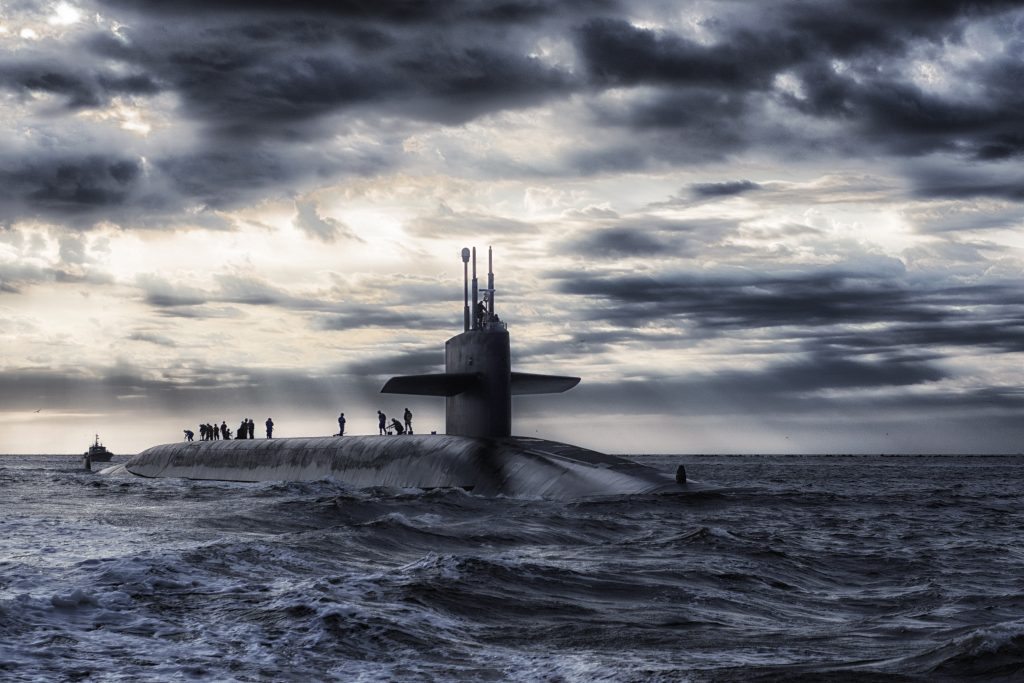 When driving at night, it is always important to make sure your vehicle lights are working, not just so you can see, but also so others can see you. Not only can this simple task avoid an accident, but failure to do so can get you in trouble with the law.
When driving at night, it is always important to make sure your vehicle lights are working, not just so you can see, but also so others can see you. Not only can this simple task avoid an accident, but failure to do so can get you in trouble with the law.
One night in March 2014, Mr. Roland Lege was driving on Highway 91 near Garden City, Louisiana, when he got into an accident with a tractor-trailer driven by Mr. Milton Livas. Mr. Lege claimed that the trailer was swaying back and forth from the right lane to the left and that the brake lights were not working, preventing Mr. Lege from seeing it properly. The Sixteenth Judicial District Court in the Parish of St. Mary, Louisiana heard the case that followed from the accident.
According to Louisiana law, trailers like the one Mr. Livas was driving must have lighted tail lamps displayed when the natural light is insufficient for others to see the trailer from five hundred feet. La. R.S. 32:301(A)(1) & (2). Mr. Lege, on the other hand, had a duty to not follow another motor vehicle more closely than is reasonable. La. R.S. 32:81(A). In rear-ending the trailer, there is a presumption that Mr. Lege was negligently driving too closely to it; however, he may rebut this presumption by proving he was driving at a safe distance or by showing that Mr. Livas was driving negligently and created a hazard that could not be reasonably avoided.
 Louisiana Personal Injury Lawyer Blog
Louisiana Personal Injury Lawyer Blog


 When one is injured due to the negligence of another, it is reasonable to expect an award of damages. However, the plaintiff must first prove all the elements of negligence. Not only must a plaintiff prove the defendant had a duty of care which the defendant violated, but the plaintiff must also offer evidence that shows the defendant’s conduct was the factual and legal cause of the plaintiff’s injuries. For many cases, the causal connections can be difficult to prove and requires expert testimony. For these reasons, a good lawyer is essential for the successful outcome of a negligence suit.
When one is injured due to the negligence of another, it is reasonable to expect an award of damages. However, the plaintiff must first prove all the elements of negligence. Not only must a plaintiff prove the defendant had a duty of care which the defendant violated, but the plaintiff must also offer evidence that shows the defendant’s conduct was the factual and legal cause of the plaintiff’s injuries. For many cases, the causal connections can be difficult to prove and requires expert testimony. For these reasons, a good lawyer is essential for the successful outcome of a negligence suit. The Louisiana Supreme Court has recognized that awarding damages for medical expenses without awarding pain and suffering damages, though seemingly inconsistent, is not invalid on its face.
The Louisiana Supreme Court has recognized that awarding damages for medical expenses without awarding pain and suffering damages, though seemingly inconsistent, is not invalid on its face.  What happens when a person is injured due to a company’s negligence and the company is based outside of the United States? The plaintiff generally must file a lawsuit in federal court, but there are certain jurisdictional requirements that have to be met. A plaintiff’s ability to file a lawsuit against an international company in a U.S. district court depends on how much “contact” the company has with the United States.
What happens when a person is injured due to a company’s negligence and the company is based outside of the United States? The plaintiff generally must file a lawsuit in federal court, but there are certain jurisdictional requirements that have to be met. A plaintiff’s ability to file a lawsuit against an international company in a U.S. district court depends on how much “contact” the company has with the United States. We often hear that insurance companies are stingy and heartless. Though some descriptions of insurance companies are exaggerated, it is nevertheless true that insurance companies are judicious in paying out claims. In some cases, an insurance company will attempt to avoid payment at almost any cost.
We often hear that insurance companies are stingy and heartless. Though some descriptions of insurance companies are exaggerated, it is nevertheless true that insurance companies are judicious in paying out claims. In some cases, an insurance company will attempt to avoid payment at almost any cost.  In personal injury cases, the plaintiff can only successfully prove the defendant’s negligence if a legal duty of care exists. Where there is no duty of care as a matter of law, a trial court can dismiss the lawsuit by summary judgment. So, when a defendant files a petition for summary judgment claiming that no duty exists, he is saying that even if all of the facts alleged by the plaintiff are true, there still is no duty of care owed by the defendant to the plaintiff.
In personal injury cases, the plaintiff can only successfully prove the defendant’s negligence if a legal duty of care exists. Where there is no duty of care as a matter of law, a trial court can dismiss the lawsuit by summary judgment. So, when a defendant files a petition for summary judgment claiming that no duty exists, he is saying that even if all of the facts alleged by the plaintiff are true, there still is no duty of care owed by the defendant to the plaintiff.  The Louisiana statutory employer defense grants statutory employers the exclusive remedy protections of the Louisiana Workers’ Compensation Act.
The Louisiana statutory employer defense grants statutory employers the exclusive remedy protections of the Louisiana Workers’ Compensation Act.  When you are injured in an accident, it may be tempting to file a lawsuit against anyone and everyone who might have been even slightly involved in the chain of events. The pain and frustration of an accident leads some injured parties to try and make as many people pay as possible. This instinct, while perhaps useful, needs to be tempered with some common sense and a firm understanding of the law. And, if multiple defendants are going to be sued, sufficient evidence has to be presented to show each party’s involvement and their negligence in the accident.
When you are injured in an accident, it may be tempting to file a lawsuit against anyone and everyone who might have been even slightly involved in the chain of events. The pain and frustration of an accident leads some injured parties to try and make as many people pay as possible. This instinct, while perhaps useful, needs to be tempered with some common sense and a firm understanding of the law. And, if multiple defendants are going to be sued, sufficient evidence has to be presented to show each party’s involvement and their negligence in the accident.  Once a trial court determines a judgment, it is difficult to obtain a reversal, especially if the judgment is one in which a jury awards compensation for a personal injury plaintiff. In the case below, the defendant appealed the amount the Trial Court awarded the plaintiff. The Appellate Court was deferential to the Trial Court’s judgment.
Once a trial court determines a judgment, it is difficult to obtain a reversal, especially if the judgment is one in which a jury awards compensation for a personal injury plaintiff. In the case below, the defendant appealed the amount the Trial Court awarded the plaintiff. The Appellate Court was deferential to the Trial Court’s judgment. Property owners have a responsibility to maintain safe conditions on their premises. However, if you are injured on someone’s property, there are still numerous elements you must prove in order to prevail on any lawsuit you may file for injuries arising from an unsafe premises. Establishing these elements can be especially challenging when you are injured from an activity that may be considered openly and obviously risky. This was this situation facing Mr. and Mrs. Marshall following Mrs. Marshall’s accident on an escalator at Jazz Casino in the Orleans Parish of Louisiana.
Property owners have a responsibility to maintain safe conditions on their premises. However, if you are injured on someone’s property, there are still numerous elements you must prove in order to prevail on any lawsuit you may file for injuries arising from an unsafe premises. Establishing these elements can be especially challenging when you are injured from an activity that may be considered openly and obviously risky. This was this situation facing Mr. and Mrs. Marshall following Mrs. Marshall’s accident on an escalator at Jazz Casino in the Orleans Parish of Louisiana.